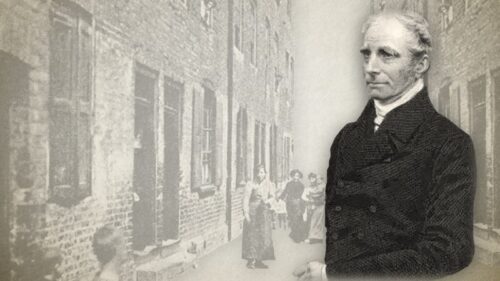Charles Buck
Charles Buck (1771-1815) was an English Independent minister, best known for the publication of his “Theological Dictionary”. According to the “Dictionary of National Biography”, a Particular Baptist minister named John C. Ryland (1723-1792) assisted Buck by writing many of the articles for the aforementioned publication. One may conclude, based not only Buck’s admiration for his friend Ryland, but also on the entries in his Theological Dictionary, that he stood head and shoulders with the High-Calvinists of his day.
Charles Buck on the Biblical Covenants (Complete)
Charles Buck's Theological Dictionary
-
167 Gnostics
GNOSTICS (from knowing,) ancient heretics, famous from the first rise of Christianity, principally in the east. It appears from several passages of Scripture, particularly 1 John 2:18; 1 Tim. 6:20; Col. 2:8; that many persons were infected with the Gnostic heresy in the first century; though the sect did not render itself conspicuous, either for numbers or reputation, before the time of Adrian, when some writers erroneously date its rise. The name was adopted by this sect, on the presumption that they were the only persons who had the true knowledge of Christianity. Accordingly they looked on all other Christians as simple, ignorant, and barbarous persons, who explained and interpreted the sacred writings in a low, literal, and unedifying signification. At first, the Gnostics were…
-
166 Atheist
ATHEIST One who denies the existence of God:--this is called speculative atheism. Professing to believe in God, and yet acting contrary to this belief, is called practical atheism. Absurd and irrational as atheism is, it has had its votaries and martyrs. In the seventeenth century, Spinosa, a foreigner, was its noted defender. Lucilio Vanini, a native of Naples, also publicly taught atheism in France; and, being convicted of it at Toulouse, was condemned and executed in 1619. It has been questioned, however, whether any man ever seriously adopted such a principle. The pretensions to it have been generally founded on pride or affectation. The open avowal of atheism by several of the leading members of the French convention seems to have been an extraordinary moral…
-
165 Sect
SECT A collective term, comprehending all such as follow the doctrines and opinions of some divine, philosopher, &c. The word sect, says Dr. Campbell, (Prelim. Diss.) among the Jews, was not in its application entirely coincident with the same term as applied by Christians to the subdivisions subsisting among themselves. We, if I mistake not, invariably use it of those who form separate communions, and do not associate with one another in religious worship and ceremonies. Thus we call Papists, Lutherans, Calvinists, different sects, not so much on account of their differences in opinion, as because they have established to themselves different fraternities, to which, in what regards public worship, they confine themselves; the several denominations above-mentioned having no inter-community with one another in sacred…
-
164 Religious
RELIGIOUS In a general sense, something that relates to religion. It is also used for a person engaged by solemn vows to the monastic life; or a person shut up in a monastery, to lead a life of devotion and austerity under some rule or institution. The male religious are called monks and friars; the females, nuns and canonesses.
-
163 Religion
RELIGION Is a Latin word, derived, according to Cicero, from rilegere, "to re-consider;" but according to Servius and most modern grammarians, from religare, "to bind fast." If the Ciceronian etymology be the true one, the word religion will denote the diligent study whatever pertains to the worship of God; but, according to the other derivation, it denotes that obligation which we feel on our minds from the relation in which we stand to some superior power. The word is sometimes used as synonymous with sect; but, in a practical sense, it is generally considered as the same with godliness, or a life devoted to the worship and fear of God. Dr. Doddridge thus defines it: "Religion consists in the resolution of the will for God,…
-
162 Passover
PASSOVER A solemn festival of the Jews, instituted in commemoration of their coming out of Egypt; because, the night before their departure, the destroying angel, who put to death the first-born of the Egyptians, passed over the houses of the Hebrews, without entering therein; because they were marked with the blood of the lamb, which was killed the evening before, and which for this reason was called the paschal lamb. See Exod. 12.



